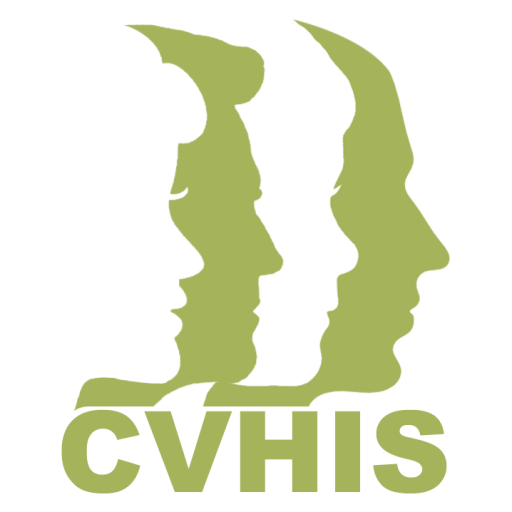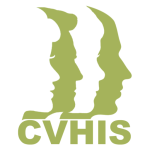About Brain Injury
“An Acquired Brain Injury is a temporary or permanent damage to the brain that occurs after birth. It is not the same as a brain injury you are born with or a health condition such as dementia or Alzheimer’s disease. Common causes include injury from an accident, assault, disease, stroke, brain tumor, and drug or alcohol abuse. It can cause physical disability as well as problems with thinking, memory, attention, emotions, and relationships.”
– Home and Community Care
Vancouver Island Health Authority
“Damage to the brain, which occurs after birth and is not related to a congenital or a degenerative disease. These impairments may be temporary or permanent and cause partial or functional disability or psychosocial maladjustment”
– World Health Organization (1996)
Commonly Reported Brain Injury Symptoms
How Brain Injuries Occur
Brain injuries occur when normal brain function is disrupted by an internal (e.g. broken blood vessel) or, external source (e.g. motorcycle accident). Common causes of brain injury include motor vehicle collisions, assaults, home and workplace accidents, falls, stroke and sports. Other causes of brain injury include brain aneurysm, brain tumours, substance abuse and viral infections, such as, meningitis and encephalitis.
Brain injuries often occur when an individual sustains a forceful blow to the head (acceleration/deceleration injury) or when the head is subjected to severe rotational forces that tear brain tissue (axonal shear injury). These types of brain injury may be referred to as traumatic brain injuries.
With acceleration/deceleration injuries, the individual is exposed to a forceful impact or motion that brings a person’s head to a sudden stop, causing the brain to crash into the skull. In these situations, the brain bounces back and forth inside of the head, causing damage to the sites where the brain hits the skull.
With axonal shearing injuries, individuals are exposed to powerful rotational forces that can twist and tear connections between brain cells. This may happen when the head violently starts or stops a movement, such as in auto collisions, falls, and assaults. These injuries are a major cause of unconsciousness and long-term comas following a brain injury.
Commonly Reported Brain Injury Symptoms
Brain injury symptoms can generally be grouped into four broad categories:
- Cognitive
- Behavioural/Emotional
- Physical
- Perceptual
Because each brain injury is unique, individuals may experience different symptoms depending on the areas of the brain that are injured.
Cognitive – Thinking and Learning
Cognition refers to how we think and learn. When the brain is injured, one’s ability to think and learn new information may be affected. Cognitive changes are common after brain injury. Symptoms may include:
- decreased attention span and difficulty concentrating
- difficulty with memory
- difficulty processing and/or comprehending spoken or written information
- impaired decision making and problem solving
- decreased ability to follow multistep instructions
- disorientation or confusion
Behavioural/Emotional
Brain injury survivors may also experience neuro-psychological problems that impact their behaviour and personality changes. Behavioural changes following a brain injury can be minor or substantial.
Many brain injury survivors experience one or more of the following behavioral symptoms:
- agitation, anger, frustration, irritability
- anxiety, depression, reduced stress tolerance
- lack of inhibition (e.g., aggressive, vulgar and/or inappropriate sexual behaviour)
- low motivation, flattened mood and/or heightened emotional response
Behavioural changes can be particularly stressful for survivors, their families and caregivers. For family caregivers, personality changes are often said to be the most challenging and difficult symptom of brain injury.
Physical
Brain injuries can also cause physical impairments. Some brain injury survivors may experience:
- persistent headaches, dizziness
- difficulties with movement and/or impaired motor control
- fatigue, low energy and sleep disorders
- sensitivities to light and noise
- speech and language impairments
- seizures
Perceptual
Perception is a process of attaining an understanding of the environment by interpreting sensory information. All perception involves signals in the brain and nervous system that are received by sensory organs.
When the brain is injured, individuals may notice changes to their senses, including their:
- vision, hearing, smell, taste and touch
- sense of balance
- awareness of time and space
Stroke
Stroke is also a common form of brain injury. Unlike a brain injury that is caused by an external force, stroke is caused by the interruption of the blood supply to the brain, usually because a blood vessel bursts or is blocked by a clot. This cuts off the supply of oxygen and nutrients to the brain causing tissue damage.
The effects of a stroke depend on where the brain is injured and how much tissue damage occurred. If a stroke occurs and blood flow can’t reach the region that controls a particular body function, that part of the body may not work as it should.
The most common symptoms of stroke include: confusion, difficulty speaking or understanding speech; difficulty seeing with one or both eyes; difficulty walking, dizziness, loss of balance or coordination; severe headache; fainting or unconsciousness.
Stroke Warning Signs
from the Canadian Heart and Stroke Foundation
Stroke is a medical emergency. Recognizing and responding immediately to the warning signs of stroke by calling 9-1-1 or your local emergency number can significantly improve survival and recovery. If a person is diagnosed with a stroke caused by a blood clot, doctors can administer a clot-busting drug available only at a hospital, and only within a few crucial hours after symptoms begin. That’s why it is very important to be able to recognize the 5 warning signs of stroke and immediately call 9-1-1 or your local emergency number.
Five Warning Signs of Stroke
- Weakness – Sudden loss of strength or sudden numbness in the face, arm or leg, even if temporary.
- Trouble speaking – Sudden difficulty speaking or understanding or sudden confusion, even if temporary.
- Vision problems – Sudden trouble with vision, even if temporary.
- Headache – Sudden severe and unusual headache.
- Dizziness – Sudden loss of balance, especially with any of the above signs.
If you experience any of these symptoms CALL 9-1-1 or your local emergency number immediately.

